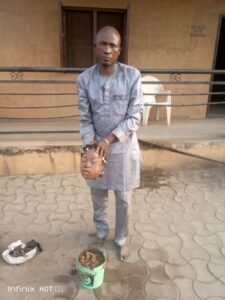NDLEA, others collaborate to check drug abuse, human trafficking
The National Drug Law Enforcement Agency (NDLEA) in collaboration with Attorney General Alliance, Africa (AGA-Africa) and the Roost Foundation has organised a two-day workshop for the training of critical stakeholders on tackling the menace of human trafficking, irregular migration, drug abuse, sexual and gender-based violence in the country.
According to AGA-Africa, human trafficking is a $150 billion per year industry, with $99 billion from sexual exploitation, hence, the need for a collective effort in fighting the scourge.
AGA-Africa country coordinator for Nigeria, Ebelechukwu Enedah, in a welcome address, lamented that attention was yet to be given to the fact that there is a strong interlink between human trafficking and drug trafficking.
She added that “the idea that human beings can be exploited and used over and over for profit is the greatest humanitarian crisis of our time.”
Enedah, noted that apart from equipping stakeholders with the necessary knowledge and skills to combat the twin monster of human and drug trafficking/abuse, the workshop will shine the spotlight on the problem in Abuja, especially, the Mpape community to minimise the abuse of drugs amongst children, youths and adults.
Also speaking, Chairman, Board of Trustees, United Nations Voluntary Trust Fund for Victims of Trafficking in Persons (UNVTF), Dame Julie Okah-Donli, disclosed that apart from the victims who are already addicted to drug abuse, human traffickers use drugs as a ‘bait’ to lure people.
“They capitalise on substance abuse disorder to promise their victims free and constant supply of illegal drugs in exchange for sexual and labour exploitation,” she added.
Okah-Donli stressed that after passing through primary, secondary and sometimes tertiary school victimisation phases, victims of drug trafficking and abuse deserve a level of care and special treatment to support them in their recuperation process.
“At this stage, the survivors come in contact with caregivers and caregiving institutions. It is for this reason that training and retraining is quite imperative for relevant stakeholders,” she declared.




